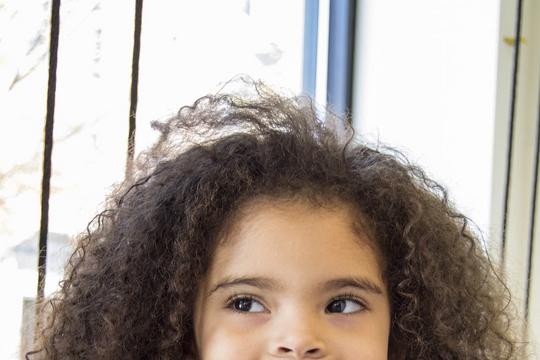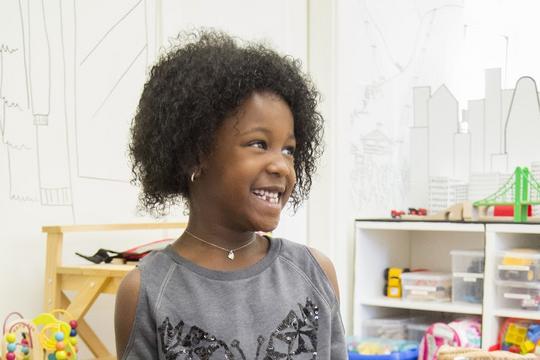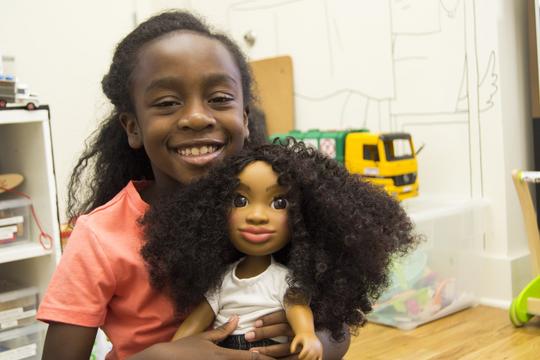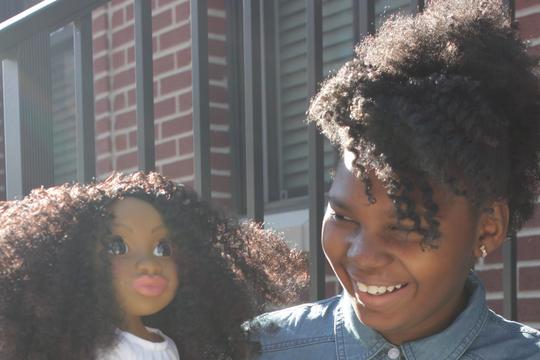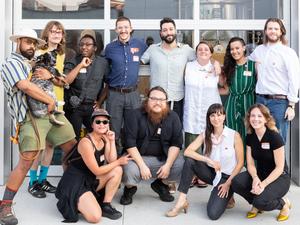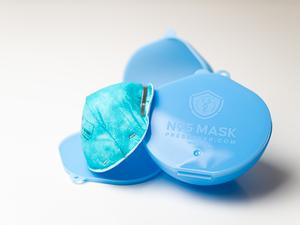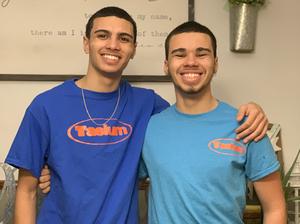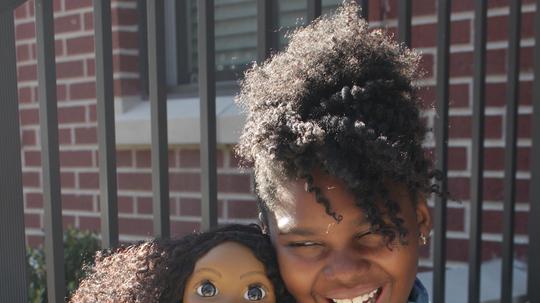
Toys are incredibly formative.
For Yelitsa Jean-Charles, founder and creative director of Healthy Roots Dolls, it was this knowledge — and her enduring childhood frustration that the dolls on the shelves didn’t capture the likeness of her or her friends — that inspired her to make her own.
“Growing up, I didn’t see a lot of girls on TV that looked like me being represented positively or considered beautiful,” she said. “I had a lot of experiences with colorism and internalized racism that shaped my perception of beauty and confidence.”
She told a story about receiving a black Barbie doll one year for Christmas as a child, shocking her parents when she cried. “It wasn’t the pretty one,” she had told them. “It wasn’t until I got to college that I started to unpack these issues I had with my natural hair texture and skin tone.”
Jean-Charles’ college experience at the Rhode Island School of Design was transformative in many ways. “I started to embrace and love my blackness after learning from other black women on campus,” she said. After one friend went for the “big chop” and cut off all her hair so as to avoid perming it, Jean-Charles began thinking about how she didn’t even really know what her own natural hair looked like, because she was always straightening it. “Not only that, but at 20 years old, I didn’t even know how to do my hair!”
It’s important to note two things here: one, that there is significant historical and political context around black hair. Chemically treating black hair “…over natural styles has its roots in the structural and systemic regulation of black women’s bodies,” writes Brittany Cooper in a piece for Salon. “Black hair is political.”
And two: so are toys, especially dolls. “Toys influence how we think, act and see ourselves,” Jean-Charles said.
She referenced the “doll test,” a study conducted in the 1940s by psychologists Kenneth and Mamie Clark. It looked to study the effects of segregation on African American kids, using four dolls, all exactly the same, save their color. The Clarks asked participants (black children aged three to seven) to choose their favorite one and describe it. The white dolls received overwhelming favoritism and praise, while black dolls were derided for their perceived “ugliness.” The study ultimately found that "'prejudice, discrimination, and segregation' created a feeling of inferiority among African-American children and damaged their self-esteem.”
Jean-Charles broke it down further: “Kids need to see positive representation, and with over 50 percent of kids in the U.S. being of color, it’s time to create toys for them.”
Which brings us to her sophomore year of college, when she was required to reimagine a fairytale character. “I chose to recreate Rapunzel as a brown girl with kinky hair to show that black girls can have beautiful hair too.”
The feedback on her work was positive, with classmates saying the depiction looked like a doll. Healthy Roots Dolls began to germinate.
“I wanted to create a product for girls like me.”
However, the real flint to the flame was an unrelated comment by another classmate: “It is not our responsibility as art students to be socially responsible or aware.”
Jean-Charles, the child of Haitian immigrants, has always had a passion for using art as an agent for change. This perspective fueled how she spent her time at RISD: making things while working to shake up others. “I have always believed that art is meant to have an impact and that’s what I learned to do there,” she said. Needless to say, she disagreed heartily with her peer’s assessment, and everything else just clicked.
“That statement, and the support of my classmates, pushed me to see how the doll I created in class could have a larger impact,” she said. Healthy Roots Dolls was officially born.
It wasn’t until Jean-Charles’ junior year, and her participation in the Brown Social Innovation Fellowship and RISD’s E’Ship program, that things started to get measurably underway. She developed her first doll’s prototype for a class, using Sculpey, aluminum foil and a wig. “It was honestly as close to a [minimum viable product] as you can get,” she said. “In the process of creating it, I kept in mind the fact that my goal is to represent features that black women are often taught to hate. That’s when I started fleshing out the other characters.”
Since then, she was accepted into the 2015 MassChallenge program in Boston; she received a grant for the aforementioned BUSIF, and raised $50,000 on an early Kickstarter program. “We are also receiving funding from Arlan Hamilton of Backstage Capital and raising more money from angel investors,” she added.
As a result, the HRD team has debuted their first doll, Zoe. She’s 18 inches, “companion sized,” and “she has hair that is bigger than life,” Jean-Charles said. Zoe comes with “The Big Book of Hair,” a story that teaches natural hair care for girls via illustrated guides. Healthy Roots Dolls also sells shirts that have #LoveMyRoots emblazoned on them, for both kids and adults.
Jean-Charles herself has moved from New England to Cincinnati, as part of the Venture for America Fellowship, a program the connects recent college graduates with startups in high-growth cities around the country.
A change of scenery won’t alter the Healthy Roots Dolls mission. “My experiences as a black woman embracing my natural hair, and experience as an artist trying to find a way to create a more positive world for people of color, is what inspired Healthy Roots,” she said. “I wanted to create a product for girls like me.”
Impacting those girls is how Healthy Roots Dolls and Jean-Charles will measure success. “My goal is to one day be out in public or on a bus, see a little girl with one of our dolls and think to myself, ‘I made that,’” she said. “I want to see our dolls helping girls see themselves in a positive way.”
Jean-Charles said that there’s a host of children’s products up her and her team’s sleeves, as well as some other projects to be on the lookout for coming down the pike. In the meantime?
“#BlackGirlMagic everywhere,” she said.
